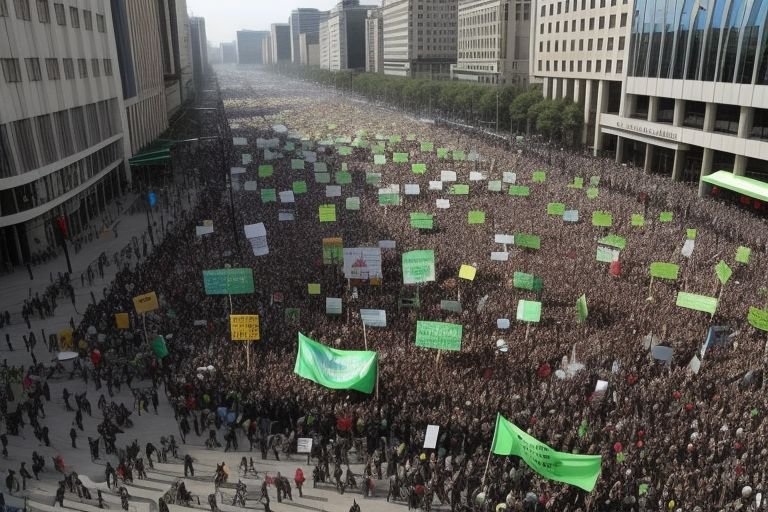
Global Climate Protests Intensify As UN Warns Of Missed Targets
Climate protesters flooded the streets in cities across the globe on Saturday to push for governments and companies to act on climate change, which they said has worsened recently. The global protests were called by an association of environmental non-governmental organisations on the same day the United Nations issued a revealing report pointing to the fact that most nations are not implementing their plans as envisaged under the Paris Agreement.
In New York, about 250,000 people took to the streets of Manhattan with placards saying ‘There is no Planet B ‘ and ‘Climate Justice Now.’ Comparable events took place in London, Berlin, Tokyo and in hundreds of other cities of the five inhabited continents. Although the protests were notably large around globe, Larger protests were witnessed in developing countries such as Lagos, Mumbai and Jakarta where people are most affected by climate change.
Many were young people at the protests because younger groups of the society are increasingly worried about inheriting a world in distress. In Sweden; 17 year old climatic protest Greta Thunberg’s speech to over 100,000 people she said that our failure is our leaders but we will not fail our tomorrow. Talking about climate justice, youth speakers at rallies all over the world sounded like Thunberg THUNBERG refering to combination of climate justice and other social and economic justice issues.
The protests are in response to a report published by the UN Environment Programme, which reveals that the international community is falling massively behind when it comes to combating climate change. The report also revealed that a total of 23 countries are already implementing policies that could help them meet the Paris Agreement emissions goals. It further avails that the world is on track to achieve temperature rises higher than the 1.5°C regime by the end of the century if no drastic policies are adopted in the shortest time possible.
Some global leaders released statements in protest against the protests and the UN report by reiterating their support the Paris Agreement. In the United States, President Joe Biden has proposed holding a “climate emergency summit” in Washington D.C., later this year to bring together leaders from the biggest emitting countries. The European Union said it would increase the share of renewable power generation and established a new goal of achieving 50 % of the clean energy mix by 2030.
But skeptics have pointed out that such promises can barely make the necessary transformations that could prevent disastrous climate change. Most demonstrators demanded no new investments in fossil fuel and the government to invest in renewable energy infrastructure. Climate reparations were also fiercely discussed, and with them the rights of indigenous people and climate apartheid; global south voices especially highlighted the burden that climate change poses upon developing countries.
The business world also was not left out following the pressure from these protest. Large scale companies such as the oil companies and the technological firms were some of the businesses that were subjected to protests around their workplaces. In response, a Global Company CEO, spearheading a group of global corporations, released a new “Corporate Climate Responsibility Pledge,” including plans for intensifying emissions disclosure, as well as more stringent emission goals. However, most environmental organisations ignored the declaration saying it was as form of green wash, urging governments to enact laws.
Following this, the focus shifted to the UN Climate Change Conference (COP29) planned for this year end. Many activists said they will continue their protests and planning for sit-ins and other acts of civil disobedience in the days leading up to the conference. People and especially various world leaders link the fate of COP29 to the effectiveness of combating climate change or its opposite.
The size and vehemence of this weekend protesters show that climate action remain high on the public agenda. As many extreme weather events are becoming more frequent and intense, the problems of global climate change are no longer an abstraction for many millions of people. The following months will show whether this outburst of grass-root activism is going to lead to specific positive changes in the national and international policies.


